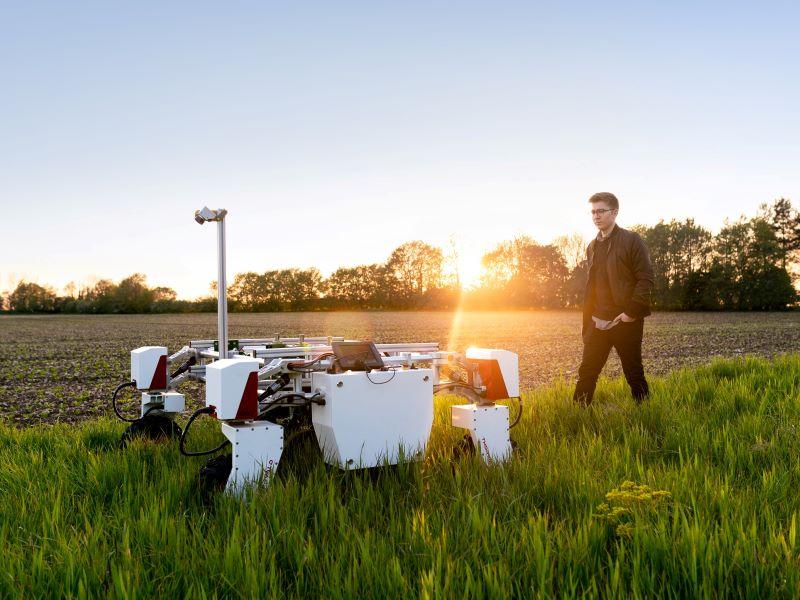
Lessons from evolutionary biology to prepare students in an uncertain world
Ideas such as less hierarchy – everyone will be a leader – and jobs such as chief happiness officer, vertical farmer and AI engineer give you a flavour of how academics and their students need to start adapting expectations of what 2025 and beyond might hold for their futures. Graduates will require competencies for careers that are only beginning to be imagined.
How to prepare students for a global working world
Ways to cultivate an entrepreneurial mindset in students
Eight fail-safe ways to build business students’ problem-solving skills
To keep up with industry demands to continually skill, upskill and reskill workforces, higher education institutions (HEIs) are working hard to incorporate relevant training, both in and outside the classroom, as part of their curricula. The pressure for universities to be ever more responsive to business demands continues to reverberate around the world.
However, as well as helping their students become workplace-ready, universities must also keep sight of the role they will play in the possible futures of society. In addition to training a workforce, HEIs bear the responsibility of developing future citizens in an increasingly turbulent world.
And yet, it’s harder than ever to find space for predicting the future, as the burden on universities grows far beyond traditional expectations of teaching, learning and research designed to help prepare students for their next steps into a chosen profession.
Evolutionary biology can provide an interesting lens to examine how the world we live in is changing. Here’s how:
An increased pace of disruption
Punctuated equilibrium, a theory in evolutionary biology, suggests that species evolve in spurts, rather than gradually as suggested by Darwinism. These spurts, or punctuations, necessitate radical changes and are separated by periods of stability, or stasis.
We see evidence of punctuated equilibrium in technological innovations that spur changes to entire ecosystems. They are separated by periods of stasis, in which the innovation is diffused, absorbed and consolidated through the infrastructure. More recently, the rate of punctuations has grown factorially, rather than linearly or even exponentially, leaving little time for stasis. This essentially means that the half-life of a technology or a related skill is shortening.
‘Fuzzing’ organisational boundaries
Over time, societies and organisations have evolved to recognise clear boundaries between what is within and what lies outside. Organisational structures, legal codes and values chain frameworks have all been developed with this understanding of boundaries.
Recent trends challenge these understandings of what an entity is. Global supply chains, gig workers, offshoring functions and risk, and solutions for outsourcing services, infrastructures and platforms have all resulted in organisational boundaries becoming more porous and identities fuzzy.
The nature of adaptation
In addition to developing skills that adapt individuals and teams to a changing environment, entities are required to adapt behaviourally, structurally and physiologically to survive.
We see consequences of fragility and lack of resilience at the individual, organisational and societal levels as we struggle to adapt to rapid changes in the macro environment. Given the onwards march of these macro trends, it is unlikely that skill-based training alone will create the citizens of tomorrow.
In another Campus article, my colleague Hind Lebdaoui talked about how universities can ideally create citizens of tomorrow. Here are the individual traits that will become important in order for these citizens to face up to an uncertain future:
- Curiosity: Or a flexible mindset that is willing to learn, unlearn and relearn. Curiosity puts the brain in a state of neuroplasticity, making it malleable towards absorbing and retaining new information. A propensity to tinker and question assumptions will be a critical quality in changing times.
- Character: Or clarity about one’s roots and ethical standpoints. This may be shaped by factors including society, culture, religion and experience. Self-awareness and clarity of why one makes decisions will be an important first step towards resilience, emotional intelligence and empathy.
- Courage: Or the ability and display of grit and determination in standing up for one’s decisions and affecting change that is authentic to your character. This is the starting point for accountability and ownership, which will be increasingly important in the future of work.
Such traits are hard to hone through skill-based education alone. Incorporation of a liberal arts base in education that reinforces these aspects within and outside the classroom will be increasingly important, which underscores the role of faculty as not just subject matter experts, but as coaches, mentors and facilitators.
Ultimately, organisations looking to hire high-level employees should be seeking out these exact competencies and traits over short-term skills to predict and identify future leaders.
Lakshmi Goel is dean of the School of Business Administration at Al Akhawayn University.
If you would like advice and insight from academics and university staff delivered direct to your inbox each week, sign up for the Campus newsletter.




